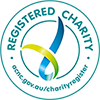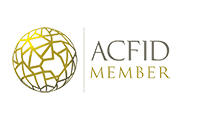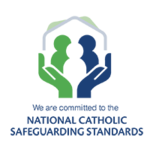 Education Program Timor-Leste – July 2025
Education Program Timor-Leste – July 2025
Key Conclusions
The evaluation found that all four of Mary MacKillop Today’s education projects – Teacher Training, Inclusive Early Education (IEE), Health Literacy, and Parent Training – were highly relevant and well-targeted. These initiatives directly addressed critical education and development gaps in Timor-Leste, including limited teacher capacity, insufficient inclusive education practices, poor school and community health literacy, and minimal parental involvement in early learning. This relevance was confirmed by survey data, with 100% of teachers stating that the training was aligned with their classroom needs and national curriculum, and 88–94% of respondents across programs affirming that sessions were engaging, useful, and applicable.
The projects were strongly aligned with the Timor-Leste Education Sector Plan and other national policies, demonstrating clear responsiveness to both systemic priorities and local realities. Survey results from the Inclusive Early Education project show that 88% of teachers agreed the training aligned with inclusive education policies, while 81% confirmed it addressed urgent classroom challenges such as disability inclusion.
Despite these achievements, the evaluation found that coordination and integration between the four projects were moderate. Although the projects shared similar goals and themes, they often operated separately rather than as parts of a unified program. Differences in schedules, separate training teams, and limited monitoring resources made it hard to take full advantage of possible connections between the projects. While coordination with stakeholders, particularly at the municipal and community levels, was generally positive, there were opportunities to enhance its organization and strategic use to further strengthen the overall program.
Sustainability emerged as an important area for further strengthening. While 94% of teachers said they felt ready to continue using inclusive practices and 88% reported receiving support post-training, the availability of teaching and learning materials varied. Teachers and parents expressed interest in additional support, such as refresher training and more locally relevant resources, to help maintain and build on the progress made.
Parents also expressed the need for more refresher sessions to help sustain their involvement, with 87% of surveyed parents stating that the training helped improve their children’s learning outcomes.
Efficiency was generally strong. Training was delivered within or under budget across most components, and average costs per participant were considered reasonable. For instance, Health Literacy training reached 200 teachers at an average of USD 239 per teacher. However, certain activities – such as safeguarding, disability inclusion events, and DRR – were under-implemented, with execution rates as low as 8% in some cases. These gaps, often linked to logistical challenges or staff turnover, highlight the need for improved planning and resource distribution in future cycles.
The use of small field teams across wide geographic areas constrained mentoring frequency and depth. While appreciated for their commitment, FBOs were stretched thin, particularly in remote locations. Digital delivery formats, improved planning for travel and coordination, and formalized government engagement were suggested by participants as ways to enhance future efficiency and sustainability.
Recommendations
To build on the progress achieved and enhance the long-term impact of its education initiatives in Timor-Leste, Mary MacKillop Today is encouraged to transition toward a more integrated and unified program model. Bringing the four education projects – Teacher Training, Inclusive Early Education (IEE), Health Literacy, and Parent Training – under a cohesive framework would allow for greater synergy in training, resource development, and field delivery. This approach would help reduce duplication, streamline operations, and improve overall program coherence and effectiveness.
A priority for future implementation is the strengthening of ongoing support mechanisms for both teachers and parents. Structured follow-up visits, peer mentoring, and periodic refresher training would reinforce learning and help embed new practices. Ensuring that Field-Based Officers (FBOs) are adequately resourced and that mentoring is delivered consistently across sites will be key to maintaining momentum and deepening impact.
Improving accessibility and inclusion remains essential. Expanding the availability of inclusive education materials – such as Braille resources, mobility supports, and Tetum-language digital tools – will better serve children with disabilities and promote equity in learning. Training for teachers and staff should continue to include specialized modules on disability inclusion to build confidence and competence in delivering inclusive classroom practices.
Efficiency and access can also be improved by investing in digital formats for training and learning materials. The use of mobile apps, PDFs, USBs, and other digital tools would not only reduce printing and distribution costs but also help ensure timely access to materials in remote communities. Additionally, careful planning and reallocation of underutilized funds – such as those earmarked for safeguarding or disaster risk reduction – can support more balanced implementation across all program objectives.
Given the strong outcomes achieved through parent training and mobile learning initiatives, there is significant potential to scale these models in other underserved areas. Community-based learning hubs, local facilitation, and culturally grounded content can further support early childhood development and foundational literacy in low-resource settings.
To strengthen system-wide sustainability, Mary MacKillop Today and its government partners – including the Ministry of Education, INFORDEPE, and municipal education offices – are encouraged to deepen collaboration. Continued alignment with national teacher development priorities, inclusive education policies, and early childhood strategies will be critical. Embedding inclusive practices and parent engagement methods into national training and curriculum frameworks would help institutionalise Mary MacKillop Today’s contributions within the broader education system.
At the same time, key stakeholders – such as local NGOs, school leaders, and community representatives – can play a more formalized role in scaling and sustaining progress. Their involvement in co-facilitating training, supporting school-level mentoring, and leading awareness campaigns has already shown promising results. Strengthening partnerships through joint planning, localized monitoring, and clear accountability structures will help ensure shared responsibility and continued progress toward inclusive, high-quality education in Timor-Leste.







